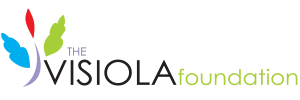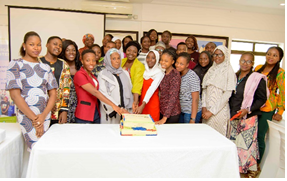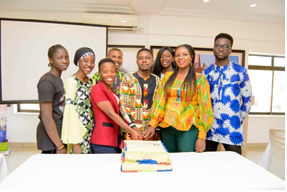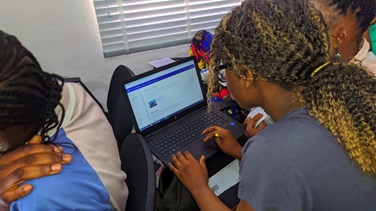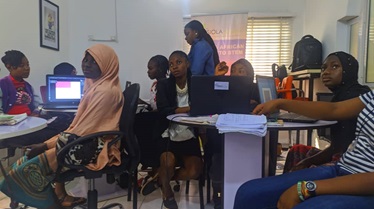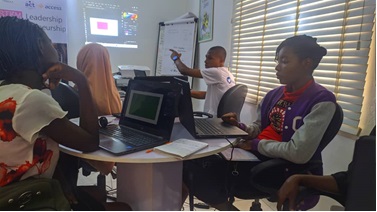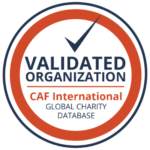the visiola foundation e-newsletter
Issue Q1, 2020
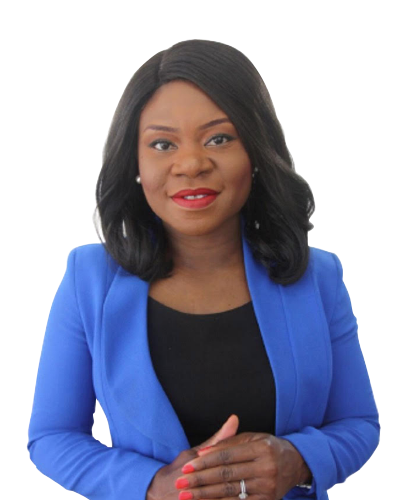
Ladé Araba
Founder and President of the Visiola Foundation
Founders' Corner
African Leaders Must Have Skin in the Game
The Code of Hammurabi defined stringent rules for risk management. King Hammurabi ruled Babylon over 4,000 years ago and published over 280 laws; which, as this blog notes, included the first set of construction laws.
Such a seemingly harsh consequence to poor construction would invariably lead to an alignment of incentives for both the homeowner and the homebuilder. While the builder might be primarily motivated by the financial reward for delivering the structure, he/she would have to go a step further to ensure the structural integrity of the building, thereby eliminating the risk of an adverse outcome for him/herself and the client. In other words, the builder had skin in the game.
When I examine the quality of the public buildings and public services offered across a number of African countries, I see a glaring mismatch between the incentives of the various stakeholders, especially as it pertains to the role and responsibilities of public servants in the delivery of their duty. Given the ongoing global pandemic, I’ll begin with the health sector.
In 2001, African Heads of State and Government adopted the Abuja Declaration, pledging 15% of annual national expenditure on healthcare. Donor countries that had previously committed to provide 0.7% Gross National Income (GNI) in Overseas Development Assistance (ODA) were also asked to follow-through on their pledges. While countries like Ethiopia have prioritized health, spending at over 15%, others have decreased the percentage of public spending on health over the intervening years. In addition, a number of countries allocate more resources to non-primary care. In spite of this low public investment environment, some countries regularly underspend on healthcare, even within approved budget allocations. The unfortunate result is that health outcomes remain perilously poor across the region.
While this scenario plays out repeatedly across Africa, we also see situations where those entrusted with delivering affordable and adequate health care, are neither required nor willing to ensure the “structural integrity” and resilience of the systems they are responsible for building. Their incentives do not appear aligned with those of the general public, whom they should serve; neither do they face adverse consequences for failing to deliver. Instead, they travel abroad to receive care at leading hospitals and medical centers – a choice most Africans cannot afford – as their primary option, when needed.
If this was subjected to greater scrutiny, their actions would not hold up to Hammurabi’s code. The on-going COVID-19 pandemic now forces many to “face the music,” so to speak, as they are compelled to seek medical treatment at home, since the global lockdown severely limits the prospects for medical tourism. It is time for African leaders to have skin in the game. It is time to radically transform the ways in which Africans are governed. It is time to require transparency, accountability, and most importantly – execution.
Below I discuss four readily implementable suggestions to help align the incentives of public servants and the masses they are empowered to serve.
1. Ensure that budget allocations reflect the national aspiration towards economic transformation. This will require prioritizing (and significantly increasing allocations to) sectors such as education, healthcare, and infrastructure; which underpin other sectors of the economy, and without which, human development is constrained. As the saying goes, the best time to prepare for a crisis was a decade ago, the next best time is now. Investments must be made to provide a healthier and more productive future for all, and not just to prepare for crises. When this is done, it further builds the resilience of countries to withstand such shocks. African countries need to think about investing to become anti-fragile.
2. Fully digitize the government
The simplest and perhaps the most cost-effective means (in the long-term) to increase transparency and good governance is to leverage technology strategically. Technology provides a footprint that cannot be deleted and thereby ensures greater levels of accountability. Moreover, it introduces efficiency, avoids waste, and strengthens the efficacy of government. If budget allocations, disbursements, approvals, and progress in project or program execution were digitized, it would enable better governance and many more projects would be implemented, creating positive externalities for the people and the economy. Moreover, it would make it easier to hold the appropriate leaders accountable for delivering on their mandates. Platforms like BudgIt and TrackaNG in Nigeria are helping the public keep track of government spending and infrastructure project execution. However, it is all the more critical for this type of transparency to be created by the government itself.
3. Emphasize high quality execution
Too many projects and programs remain incomplete or partially implemented for a variety of reasons. If public sector ministries and agencies were structured to reward excellence in execution and completion, it would ensure better alignment between their incentives and those of the public. Those tasked with implementation should be held responsible for failing to deliver, as well as for delivering sub-standard outputs. If variations of the Code of Hammurabi were to be enforced across sectors, we would certainly observe a strong improvement in the quality and in the completeness of execution. Public servants would themselves take pride in their performance – as they are forced to utilize the products and services that they have delivered.
4. Require public servants to “sleep beneath the bridges they have built”
Although there is no verifiable proof that the Romans and Babylonians enforced this, there is a saying that they required bridge builders and their families to sleep under the bridges they built to ascertain their structural integrity. This sounds a lot like a modified version of the Code of Hammurabi – Law 229. Importantly, the fact that Roman and Greek structures that were built hundreds of years ago remain, is testament to their workmanship, structural integrity, resilience, and the attention to detail paid by those who designed and constructed them. Why don’t African countries require public servants to utilize public services? If public servants had to send their children to the schools they supervise, and if they and their loved ones had to use public hospitals, would they not be incentivized to deliver? It is time that they had skin in the game.
We had a very engaging first quarter. Prior to the lockdown in response to the global pandemic, the Visiola Foundation celebrated its sixth anniversary! We are immensely grateful to our donors, sponsors, partners, mentors, volunteers, and staff for their support and hard work throughout the years. We couldn’t have directly impacted over 5,000 girls without their help! Students in our STEM Leadership and Entrepreneurship Program for Girls (STEMLEG) showcased their skills at the closing ceremony to mark the end of the program; which was partly funded by Aspire Coronation Trust (ACT) Foundation. Some of the students also excelled at national competitions, while Coding Boot Camp graduates secured internships and jobs, and received college admission to pursue various STEM degrees.
It is our delight to share these updates with you.
Warm Regards,
Ladé
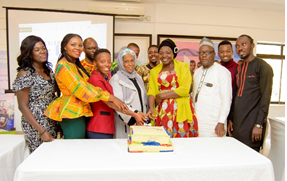
Visiola Foundation staff and volunteers cutting the anniversary cake
HURRAY! VISIOLA turns 6!!
The Visiola Foundation was born on January 23, 2014 to support the emergence of a new cadre of African leaders by mentoring and training academically excellent youth in the Science, Technology, Engineering, and Mathematics (STEM) fields.
It has been six amazing years of teaching over 5,500 girls and young women to be ethical female entrepreneurial leaders with cutting-edge technical skills to lead Africa’s long-term socio-economic transformation.
Our work is important because we are bridging the gender gap in the technical fields. We believe that with the right education, mentoring, and exposure, our prodigies can become change agents in their respective fields and communities, and we believe that the success of our students will create a positive multiplier effect.
We are immensely grateful to all our sponsors, partners, and volunteer mentors, and volunteers for their consistent support. Happy Anniversary to the Visiola Foundation!!!
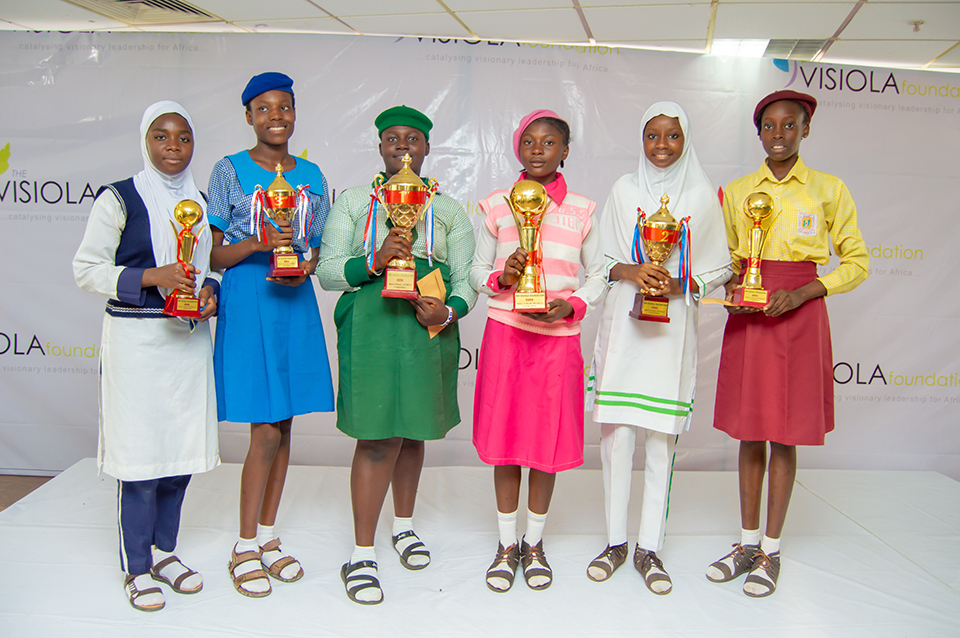
Students at the 2019 Summer Coding Boot Camp
STEM LEADERSHIP AND ENTREPRENEURSHIP FOR GIRLS (ASCG) PROGRAM INTER-SCHOOL COMPETITION
The Visiola Foundation’s end-of-year After-School Stem Club for Girls (ASCG) Program inter-school competition took place on Wednesday, March 11, 2020. The ASCG Program runs through a partnership with the Federal Capital Territory (FCT) Secondary Education Board (SEB), and is partly funded by Aspire Coronation Trust (ACT) Foundation.
The program is an initiative designed to bridge the knowledge and experiential learning gaps for girls attending underserved government secondary schools (GSS). It teaches students valuable skills to enable them to become employable and financially independent tech-enabled entrepreneurs. During the 2018 – 2019 academic year, students received hands-on, practical training through the Foundation’s carefully designed challenges and labs; which enabled them to build projects that deepen their understanding of science, technology, engineering, and math.
The students learnt how to be problem solvers by creating mobile applications to address various challenges in their communities, build robots to address mining challenges in Nigeria, develop viable business models, write business plans, marketing strategies, and run successful enterprises.
In his special address on the need for gender equality in Africa’s tech ecosystem, Mr. Tolu Olayinka, CEO, Cinoteck, stated that there is a need to get more women into technology, and the enabling environment needs to be created for them to thrive. The Foundation’s women-focused ASCG program is one of the few initiatives that specifically targets girls and plays an important role in bridging the gender gap in the field. . He further noted that the Visiola Foundation has contributed immensely to help increase the number of women pursuing technology careers which will help to bring about greater innovation and digital inclusion for the economy.
Participants share their experience in The Visiola Foundation ASCG Program. Below are quotes from some of the students at the competition.
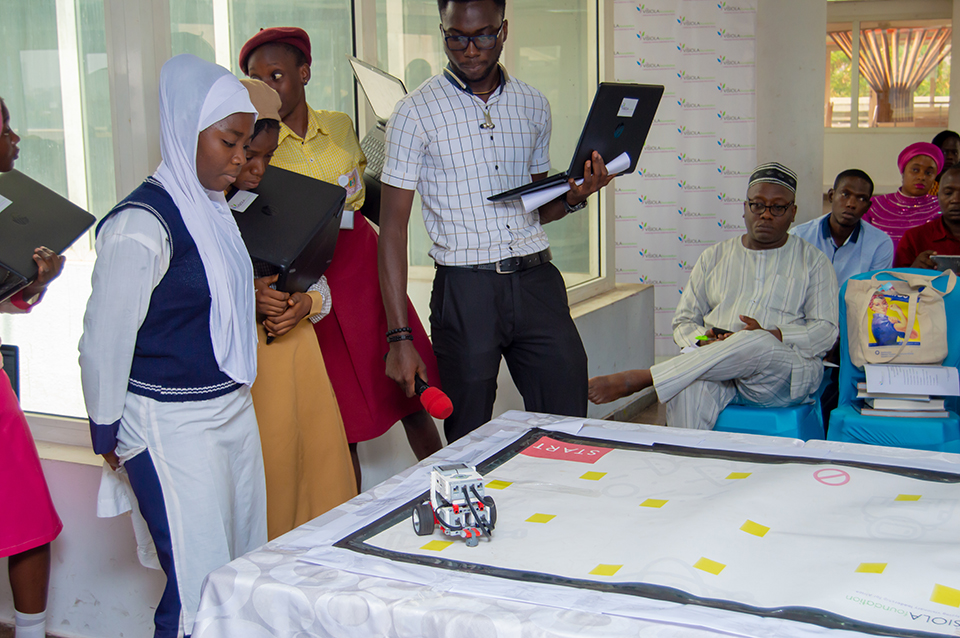
Mrs. Aisha speaks about the Visiola Foundation’s STEM Club for girls at her school
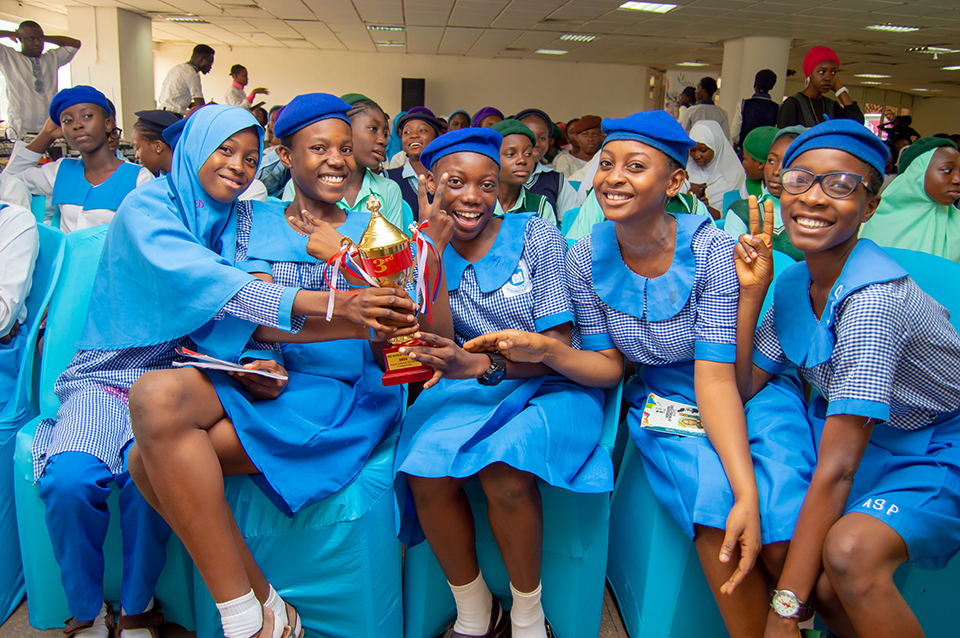
Maris (15) shares her experience in the Visiola Foundation’s STEMLEG Program
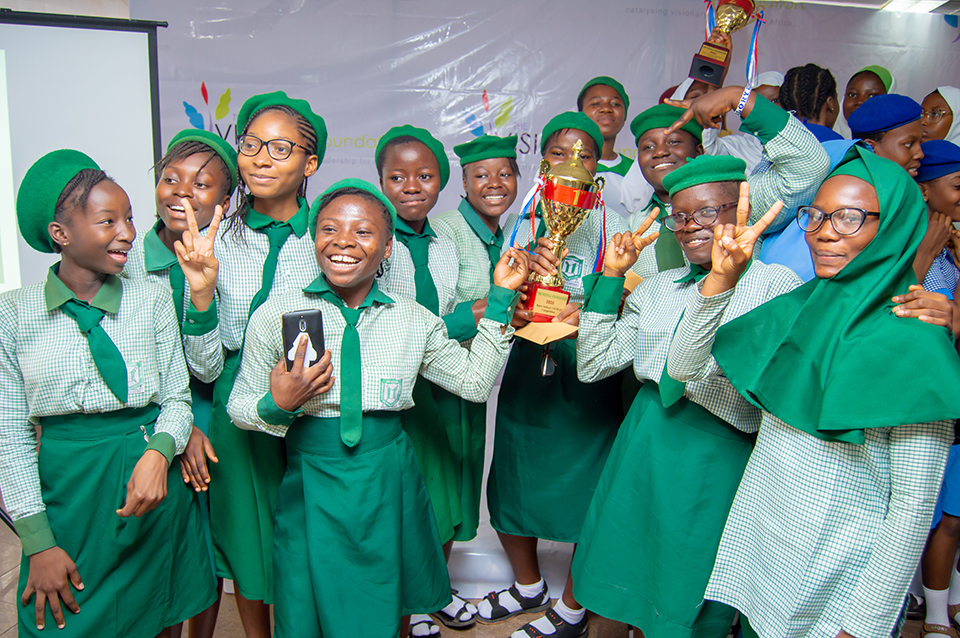
Amarachi (17) and Wasila (16) share their experience in the Visiola Foundation’s STEMLEG Program
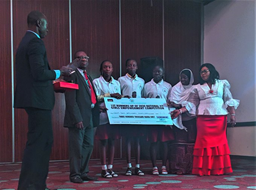
STEMLEG students at ICT competition
ascg STUDENT TEAM EMERGES 1ST RUNNER UP AT 2020 NATIONAL ICT FOR GIRLS COMPETITION
Students in our ASCG program were invited to participate in the Federal Ministry of Communications’ ICT for Girls Competition on February 16th. One of the teams presented a robotic trash sorter that separates waste for easy recycling. The team emerged 1st runner up and was awarded N150,000 ($375) and N300,000 ($750) for each student and for the school respectively. The students share their reflections on the experience below.
“I always really enjoyed my robotics and programming classes. I like the hands-on approach and doing things and I did a lot of building and programming robots.” – Precious (15)
“I was exciting demonstrating the project i and my team had designed for the competition. I love building machines and hope to be an engineer in future” – Anjola (14)
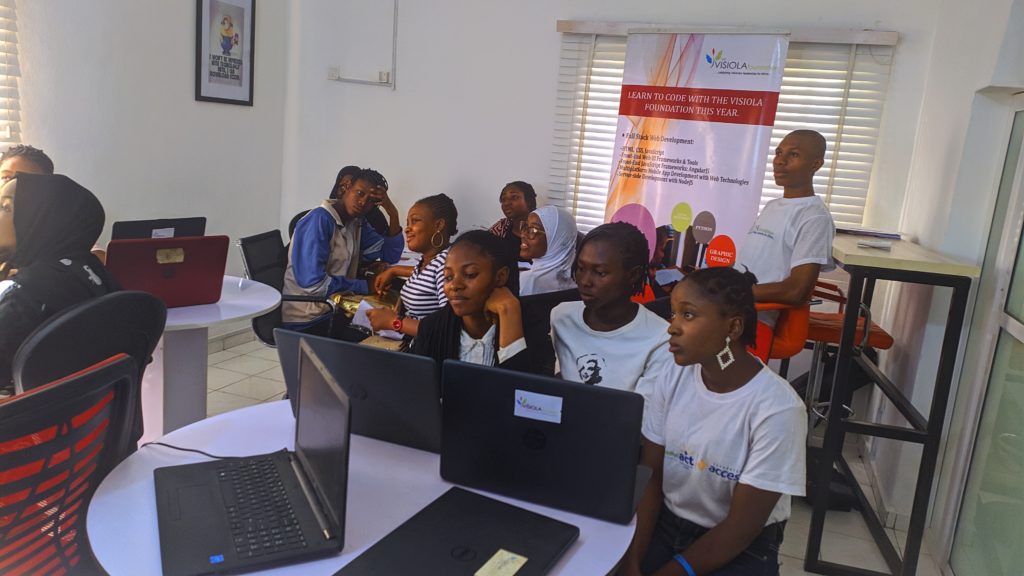
Students at the 2019 Q4/Q1 Coding Boot Camp
Q4/Q1 CODING BOOT CAMP ENDS ON A HIGH NOTE
In line with the Visiola Foundation’s mission to train and mentor girls in the STEM fields, the Foundation runs intensive coding boot camps to provide girls with a solid background to grow and become successful software developers and IT professionals. As such, the Foundation marked the conclusion of its Q4/Q1 Coding Boot Camp with students presenting the projects they built to address challenges in the health and transportation sectors on Friday, February 21, 2020.
Projects developed by participants included the following:
DOMEP: A doctor to patient scheduling web application.
DRUGBAR: A website where orphan drugs can be purchased for orphan diseases.
IRAILCONNECT: A train ticket web application
Participants learnt the fundamentals of computer programming, including logic and reasoning, Data Structures, Algorithms, Full Stack Web Development, Python, and UI/UX design and were able to show case their skills by presenting their final projects. The students presented their e-commerce websites , graphic designs and portfolios of mobile applications.
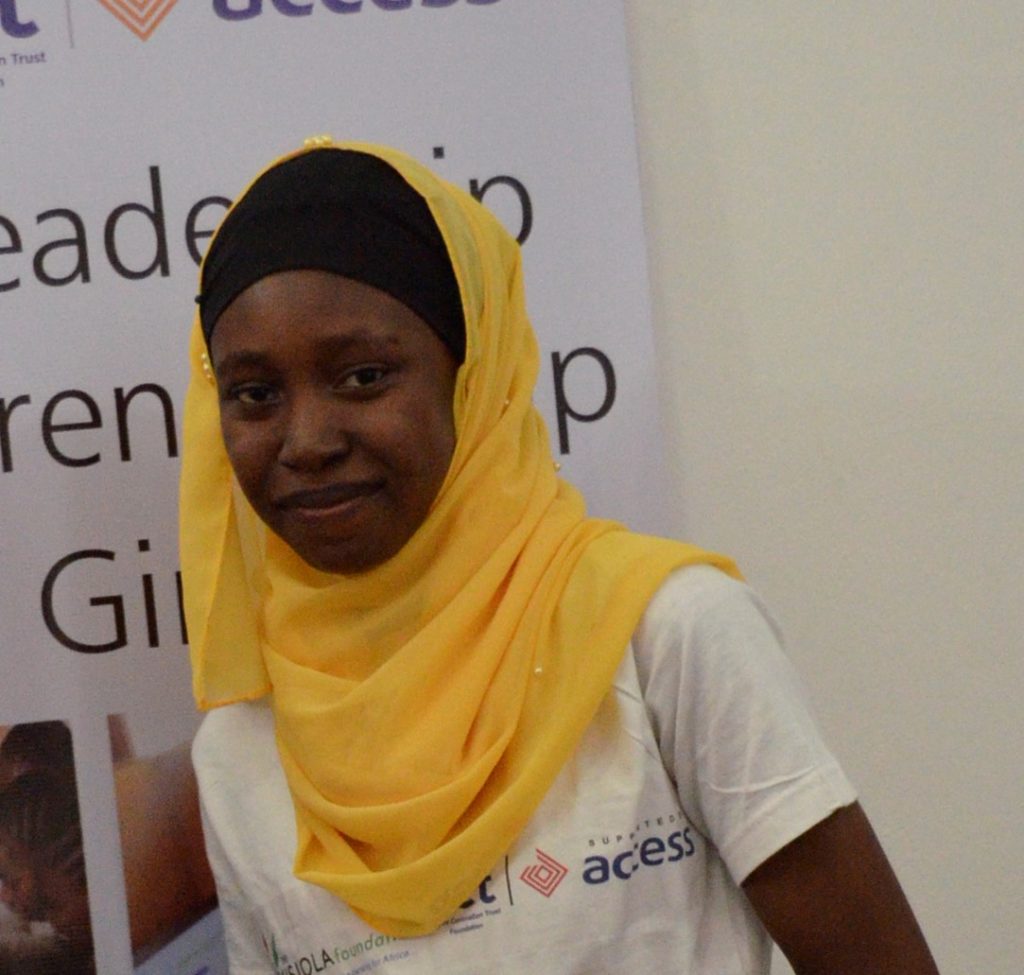
Sekinat (20) at the 2019 Summer Coding Boot Camp
summer coding boot camp graduate secures a job
Sekinat (20) a 2019 summer coding boot camp graduate shares her testimonial in securing a job.
Always in my comfort zone but with a hunger to do something meaningful, I was very shy and always felt no one would support me. One day, my sister came home from an essay competition with an amazon tablet as a prize for her performance. I was intrigued, as I had previously participated in competitions, but had never won anything as valuable. She informed me about the Visiola Foundation’s STEM program in her school and I longed to be a part of it.
In 2019, I applied to attend the coding boot camp and this was a major turning point in my life. The opportunity changed my attitude, revamped my thinking, and re-energized my view of everything. Thanks to the coding boot camp, I learnt valuable computer programming skills that made me eligible for my current role as a creative content intern at Noble Herald Resource Company. I also serve as a volunteer instructor for the Visiola Foundation, and I organize tech meet-ups for Codenovation. In addition, I host a tech podcast and intern at Friksta, an e-commerce mobile application for African fashion.
I would not have all these opportunities without the timely intervention of the Visiola Foundation. The Foundation is not just an organization to me; they did not just impact my life – they transformed it! They are my family.
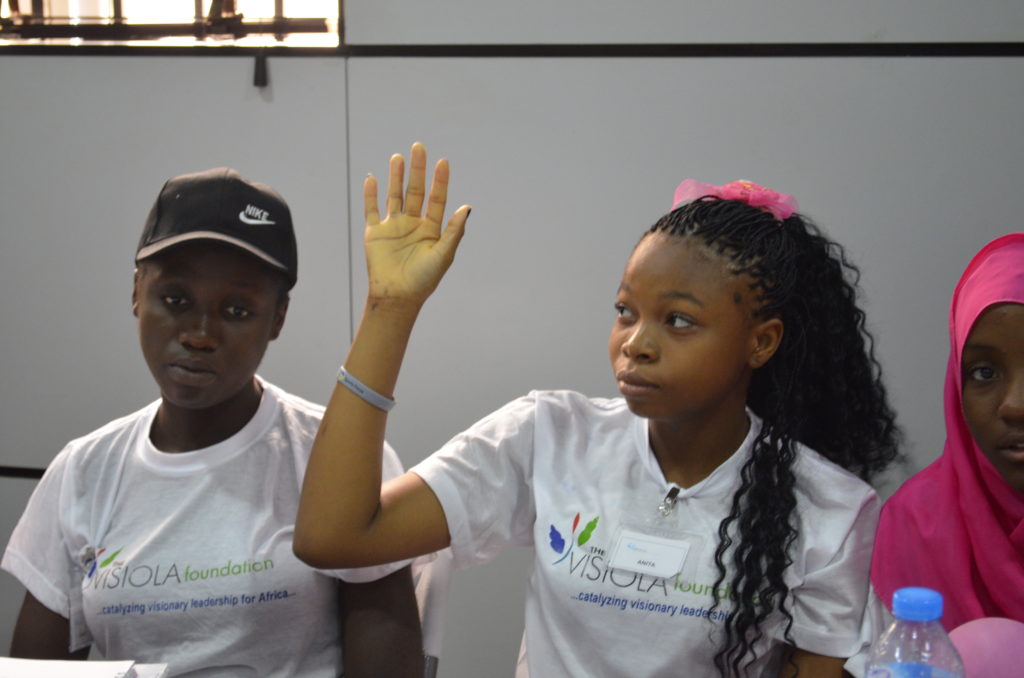
Anita at the 2018 STEM Summer Camp
ASCG, STEMLEG, AND CBC GRADUATE SECURES UNIVERSITY ADMISSION TO STUDY MEDICINE
Anita (16) was a participant in the 2017 – 2018 After-School STEM Clubs for Girls (ASCG) Program, the 2018 – 2019 STEM Leadership and Entrepreneurship for Girls (STEMLEG) Program, the 2018 and 2019 STEM Summer Camps for Teen Girls, and she graduated from the 2019 Coding Boot Camp. She was recently admitted to university to study medicine. She shares her journey below.
I was never outspoken or confident in myself and I never liked speaking in public. However, that changed when I started attending the Visiola Foundation’s programs in 2017. I became very confident in my abilities and in speaking up. I am now a creative thinker and a problem solver. This is as a result of the knowledge and skills I acquired from the Foundation’s clubs and camps that I attended. I am now extremely confident and believe I
can solve any problem and overcome any challenge that comes my way. For instance, after the 2018 STEM Summer Camp on Renewable Energy, I was able to detect a fault with my family’s solar home system. When I shared my diagnosis with my parents and siblings, they laughed. They didn’t believe that I knew what I was saying. However, that changed when they called a technician, and he repeated my diagnosis. I felt very proud of myself and it is all thanks to the Visiola Foundation.
In the Foundation’s programs, I learnt about renewable energy systems, robotics, computer programming, full stack web development, Python, and graphic design. I also went on educational tours to the Katampe Power Sub-Station and to Blue Camel Energy Company where I saw firsthand how renewable energy is used to electrify buildings.
I am really grateful for how you have helped to mold me into the young woman that I am today. I cannot wait to combine information technology with medicine.
Thank you so much for investing in me!
did you know
Most of the illiterate adults live in South and West Asia and sub-Saharan Africa. Two-thirds of these people are women.
10% fewer girls would become pregnant under the age of 17 in sub-Saharan Africa and South and West Asia if they all had a primary school education.
237 million people in sub-Saharan Africa are suffering from chronic undernutrition.
In sub-Saharan Africa, women with no education have 6.7 births on average. The figure falls to 5.8 for those with primary education and to 3.9 for those with secondary education.
The global youth literacy rate increased from 83% to 91% over two decades while the number of literate youth declined from 170 million to 115 million. In several countries in West and Central Africa, however, youth literacy remain less than 50%.
30 of the world’s 49 countries with severe or chronic malnutrition, affecting 38% of under-5 children (compared to 25% for the world) are in sub-Saharan Africa.
Only 34% of girls in sub-Saharan Africa are able to complete lower secondary school, while 42% of their male classmates do.
30% of the sub-Saharan Africa tech force are women.
In Nigeria, there are almost 5.5 million girls who are not enrolled in school.
Source: UNESCO, UN, UNICEF, Wikipedia, One.org
